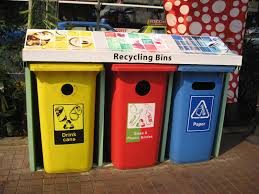ASSESSING THE ROLE/IMPORTANCE OF LANGUAGE IN TRANSFORMING OUR WORLD: THE 2030 AGENDA FOR SUSTAINABLE DEVELOPMENT
ASSESSING
THE ROLE/IMPORTANCE OF LANGUAGE IN TRANSFORMING OUR WORLD: THE 2030 AGENDA FOR
SUSTAINABLE DEVELOPMENT.
In recent times, development
organizations have come to adopt a participatory approach in undertaking
developmental projects in rural areas and places where a lot is desired in
terms of development. As a developer whose interest lies in the use of
communication tools in facilitating development, it baffles me to see the
neglect of the very crucial element of culture that most people living in very
remote and under developed areas cling on to by development organizations that
usually militates against steady progress expected by these organizations.
Ghana
committed itself to the tenets of the Millennium Development Goals in September
2001. To ensure full implementation of these goals, it mainstreamed them into
the respective national development policy frameworks. According to the Ghana
MDG’s 2015 report, progress towards the attainment of the MDGs has been
reported on annually since 2002 in Annual Progress Reports on the
implementation of national development policy frameworks. Special MDG reports
have also been prepared biennially to examine trends and to assess the
supporting environment and resources needed to attain the goals.
Interestingly, a search
through these numerous reports shows no inclusion of language as a resource
needed to attain these goals. Although Ghana’s progress has been mixed (similar
to that of a number of Sub Saharan African states) with targets such as halving
extreme poverty (MDG1A), halving the proportion of people without access to
safe drinking water (MDG 7B), universal primary education (MDG 2A) and gender
parity in primary school (MDG 3) have been attained. Substantial progress has
been made in reducing HIV prevalence (MDG 6C), access to ICT (MDG 8F) and
reducing the proportion of people suffering from hunger. However, only slow
progress has been made on full and productive employment (MDG 1B), equal share
of women in non-agriculture wage employment, and women’s involvement in
governance (MDG 3), reducing under-5 and child mortality (MDG 4), reducing
maternal mortality (MDG 5), reversing environmental resource loss and improving
sanitation (MDG 7)[Ghana’s Millennium Development Goals 2015 Report, pg.
vi].With the MDG’s dovetailing into SDG’s (Sustainable Development Goals), it’s
important that aside been guided by experiences gathered in the execution of
policies and programmes within the MDG framework, we as a country utilize
language as a means to achieving the 17 SDG’s.
Unfortunately, Africa is
the only continent where language is used to define us. Most people have
classified Africa into Anglophone, Lusophone and Francophone sections probably
as a result of our ties with our ‘colonial masters’. African societies are
highly multilingual and polyglothic using their mother tongue in their local
environment and any other inter-ethnic lingua franca once they leave their environment.
Unfortunately, these indigenous languages are not relevant means of mass media
and not widely used in formal education. These languages are unfortunately not
the languages of national governments and languages of mass communication are
hardly the languages of the people. These been the language situation in Africa
is very alarming and detriment to our emancipation. Considering Ghana as an
ideal example, 51% of total annual broadcast hours is dedicated to English
alone. It leaves the rest for all the many Ghanaian and other African
languages. This authenticates the linguistic and communication
discrepancy/mismatch on the African continent and this has very serious
consequences on the development efforts of the African people.
In a case study titled
‘MULTILINGUALISM IN GHANA’ by Bodomon Adams (1998), he classifies languages in
Ghana into 3. They include;
A.
Indigenous Languages:
·
Akan;
Fante, Bono, Kwahu, Akuapem, Asante, Akyem etc
·
Mabia;
Dagbani, Kusa, Mampruli, Gruni, Waale etc
·
Gbe;
Ewe, Fon, Aja, Mina.
·
Gruma;
Konkomba, Maba, Baasari.
·
Guan;
Gonja, Nchumbru, Krachi, Gichode, Nawuri, Nkonya, Cherepon, Larteh, Ewutu,
Efutu.
·
Ga-Adangbe; Ga, Adangbe.
·
Nzema;
Nzema, Sehwi, Anyi(Aowin), Ahanta, and Anofu(Chakosi)
·
Grussi;
Kassim, Issalim(Sisala), Chakali, Tampluma, Vagala, Mo
·
Buem;
Adele, Lelemu, Bowin, Sekpele, Siwu, Santrofi, Logba, Avatime
·
Nafaanra;
Nkuraena, Nafaanra and Ntrubo-Chala
B.
Other African Languages:
·
Chadic
·
Hausa
·
Mande
Languages (Ligbi, Bisa)
C.
Foreign Languages:
·
English
·
Arabic
·
French
It is important that we are
exposed to these classifications so we can adequately and appropriately be
informed on how to effectively communicate with these groups in achieving the
17 goals outlined in the SDG’s.
Language has a symbolic
function. There exist a tight relationship between language and ethnicity in
many parts of the world. Language is also seen as a granary of the world view
of its speakers. It expresses and best contains the indigenous belief systems
of the people. New belief systems are sometimes immediately added to the
existing belief systems. Development is only possible with the massive
involvement of the people themselves and not only the elite. This importantly
puts the indigenous language at the center of development discourse. Therefore,
there is the need to evolve the language paradigm of development to be called
development linguistics.
Summarily, if Africa and
specifically Ghana would be able to excellent perform or achieve the SDG’s
within the next 15years and also be economically prosperous, emphasis should be
placed on language and other indigenous tools in communicating and ensuring
effective participation of all and sundry in the development process. Mass
media is a very crucial tool but a lot of work has to be done through community
radio broadcasting, community theatre, and many other art forms. There is no
doubt the role programs like by the fireside and concert parties have played in
the development process of the people.
Governments must involve
all stakeholders and create enabling environments for partnership opportunities
between Aid organization, CSO’s and social enterprises as well as start-ups.
When this is done, we can move at a faster pace and development would be much
more decentralized.
Writer:
Sampson
Adotey Jnr
Senior
Year, UDS
Bachelor
of Arts (B.A.) Integrated Development Studies (Development Communication
Option)
Founder/Team Lead- DORTS ( A non-profit organization that
uses indigenous communication tools in education rural communities on issues
relating to Health, Education, Civil Rights, Agriculture etc. )
Volunteer, Odekro
(www.odekro.org)
Tel: 0243453487/0205737034


Comments